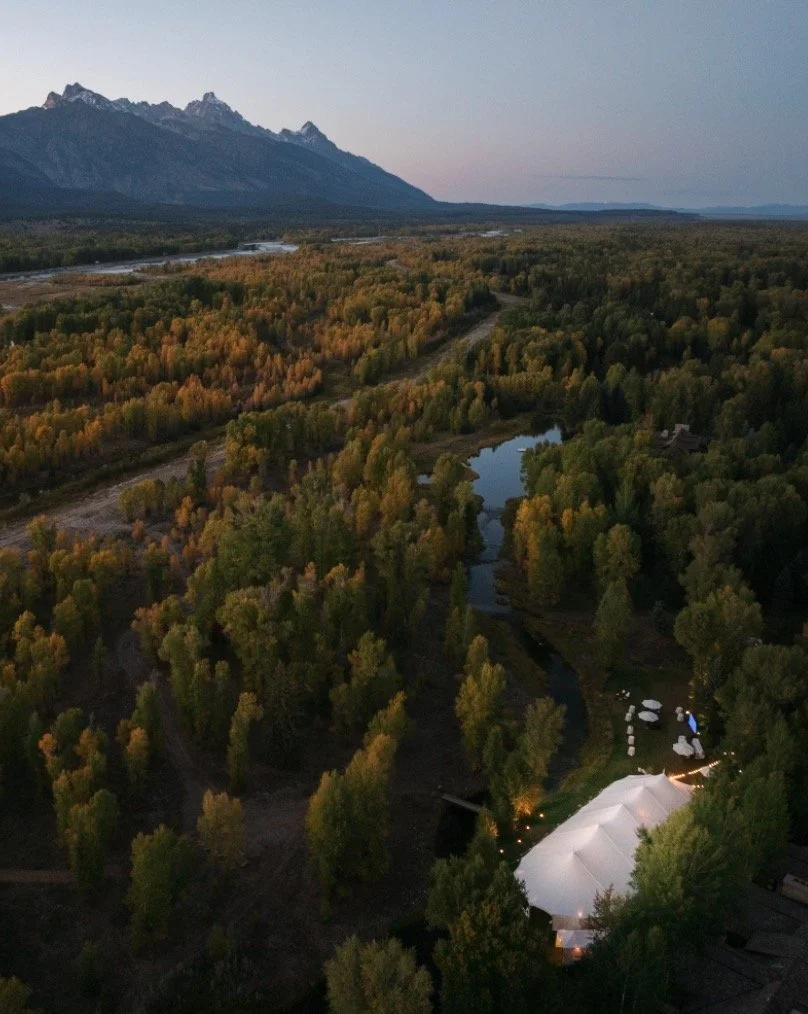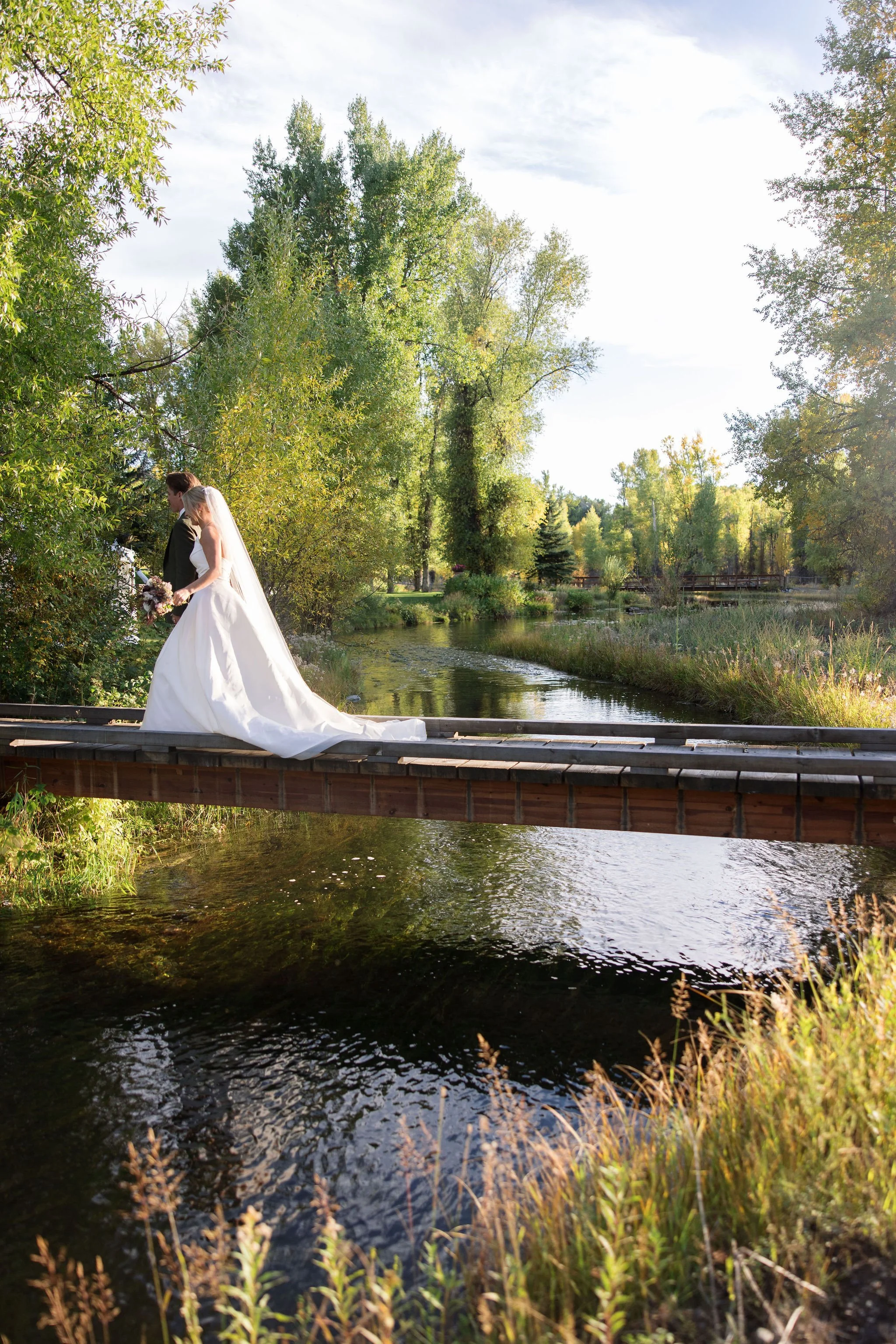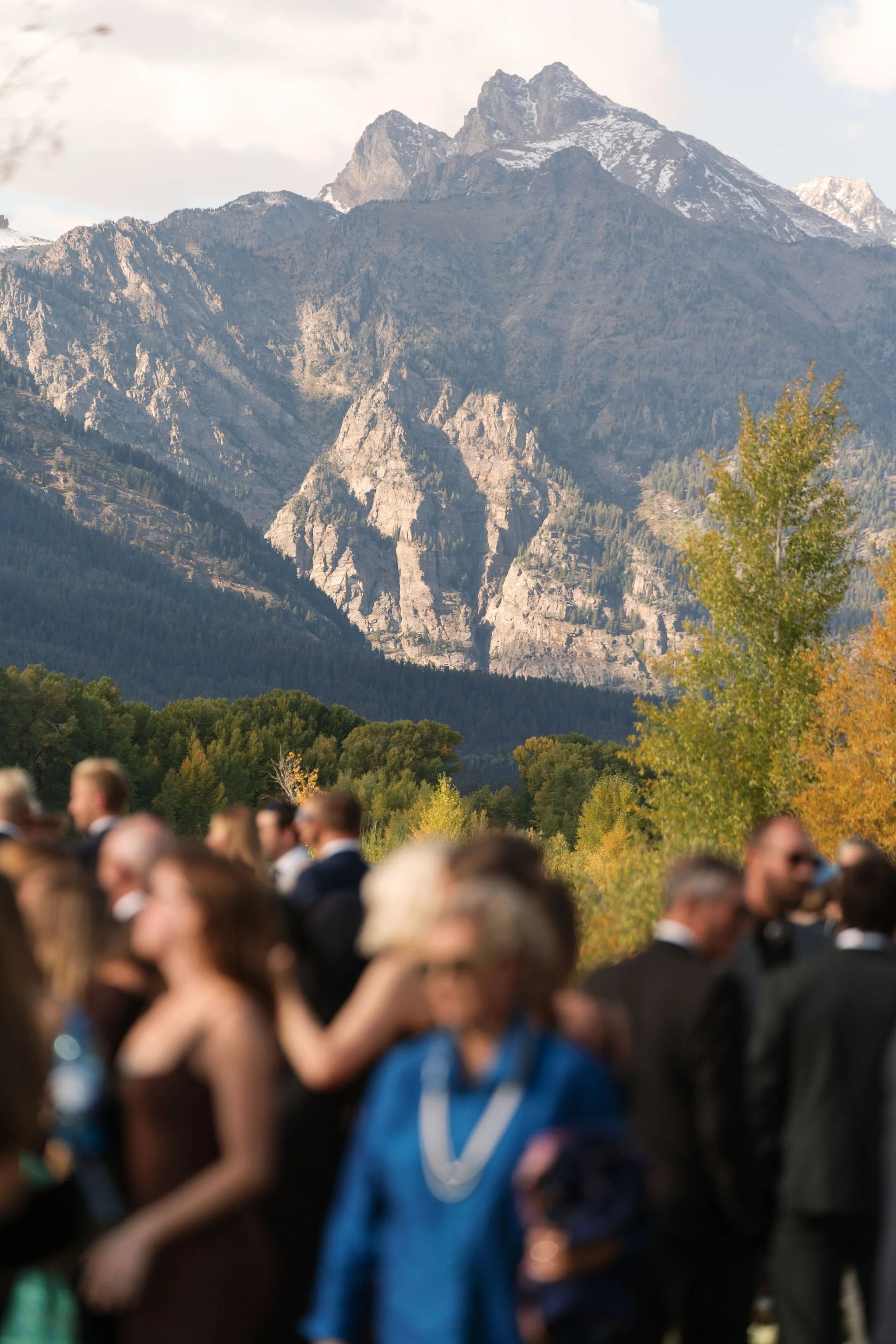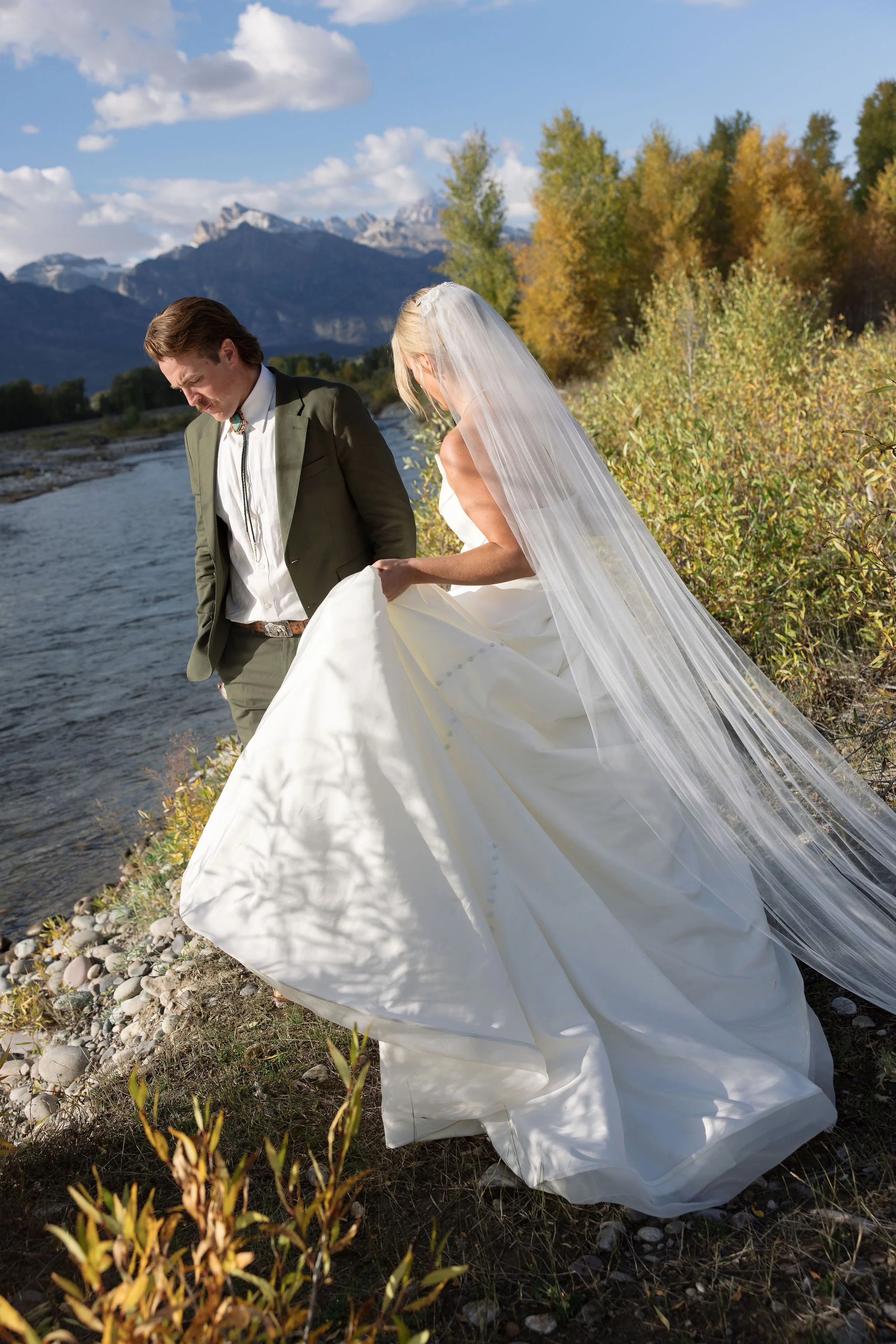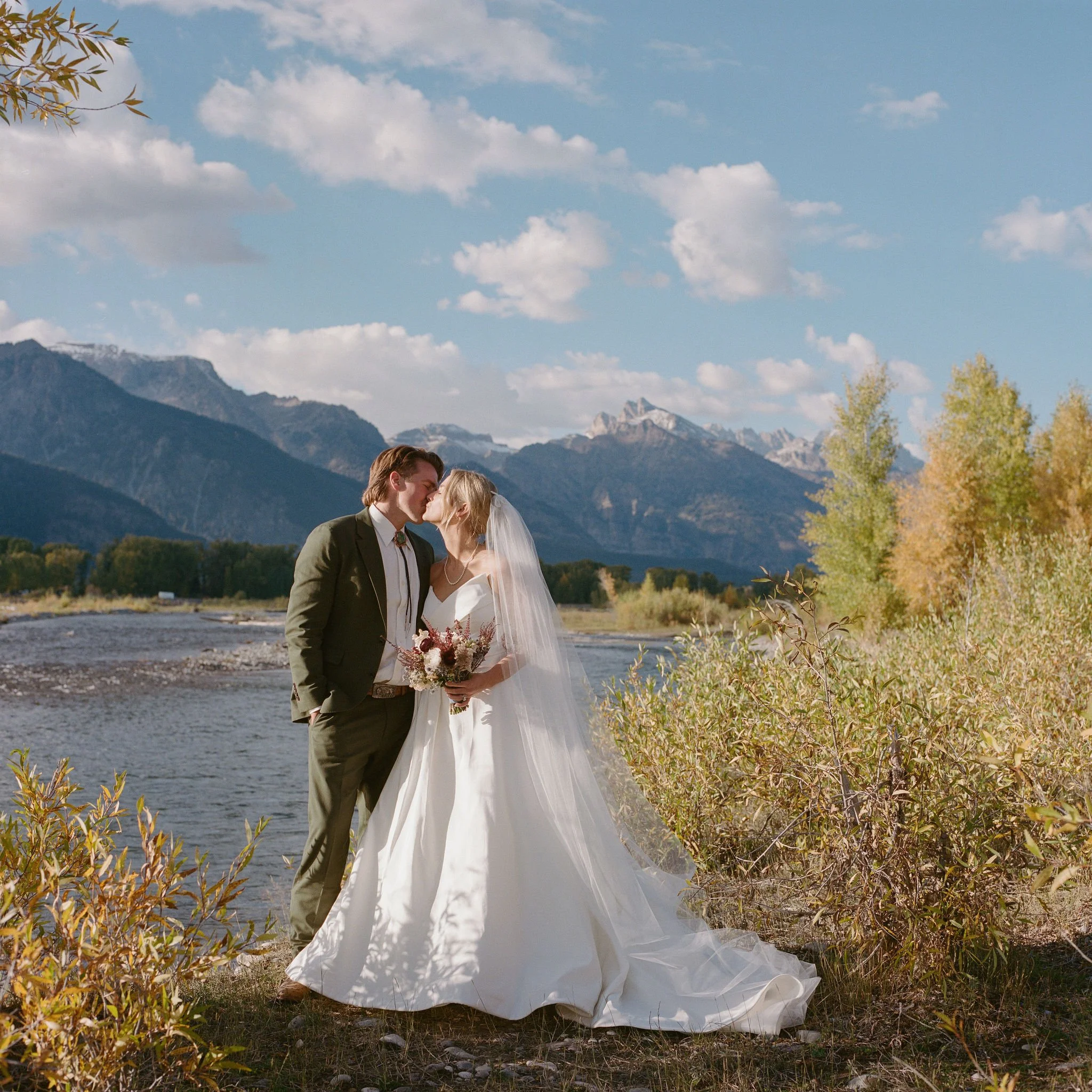The Ultimate Destination Wedding Checklist
The Ultimate Destination
Wedding Checklist:
From 12 Months Out
to the Big Day
A destination wedding can be a magical, once-in-a-lifetime experience—but it also requires more logistical coordination than a local ceremony. From choosing the perfect far-flung venue to ensuring your guests’ travel details are in order, an organized timeline is a must. Below is a comprehensive checklist, broken down by timeframe, to help you plan the destination wedding of your dreams with minimal stress.
12 Months Out:
Laying the Foundation
Choose Your Destination & Narrow Down Dates
Research possible locations based on weather, travel accessibility, and overall vibe (e.g., tropical beach, European villa, mountain retreat).
Identify a few potential dates that align with your schedule and desired season.
Set Your Budget
Determine how much you can comfortably allocate toward the wedding.
Factor in travel and accommodation expenses (for you and any family or friends you may be assisting).
Hire a Destination Wedding Planner
Look for a planner experienced in your chosen location or specializing in destination weddings.
A professional can help with local logistics, vendor sourcing, and understanding cultural or legal nuances.
Lock Down Your Venue & Date
With your planner’s guidance, reach out to potential venues early to confirm availability on your preferred dates.
Secure the venue with a deposit to finalize your wedding date.
Create a Rough Guest List
Estimate how many people are likely to travel for your destination wedding.
Keep in mind that your guest count impacts every aspect of your budget—venue size, catering, décor, accommodations, and more.
Destination weddings often have more intimate guest counts due to travel requirements.
Key Vendors (Sourced by Your Wedding Planner)
Once your venue and date are finalized, your planner will reach out to vendors who match your style and budget:
Invitation Designer – Designs save-the-dates, formal invitations, menus, escort cards, programs, and any other stationery needs.
Photographer & Videographer – Professionals who know how to capture the unique scenery and lighting at your destination.
Florist – Familiar with local blooms or can source specific flowers for your theme.
Caterer or Venue Catering – Must accommodate dietary preferences and, if desired, highlight local cuisine.
Entertainment – Could be a DJ, live band, or local musicians for an authentic cultural vibe.
Hair & Makeup Artists – Stylists who understand the climate (humidity, heat, wind) to keep you looking your best.
Officiant – Local officiants can guide you through cultural or legal requirements if you’re not bringing your own.
Transportation Providers – Arrange reliable shuttles, buses, or cars for you and your guests.
Rentals – Tents, tables, chairs, bars, linens, tableware, and other design pieces essential for the overall look and comfort of your event.
Research Marriage License Requirements
Every country (or region) may have different legal procedures.
Gather necessary documents (birth certificates, passports, etc.) and confirm any residency or waiting-period rules.
Begin Saving & Tracking Expenses
Use a separate account or spreadsheet to track all wedding-related costs.
If your wedding is in another country, keep an eye on fluctuating exchange rates.
Start Wedding Attire Shopping
Bridal gowns and suits may take several months to arrive, plus time for alterations.
Consider fabrics that suit your destination’s climate (e.g., lightweight for a tropical setting).
8–6 Months Out:
Securing Key Details& Design
Book Accommodations for You & Your Guests
Reserve a block of rooms at a hotel or resort near your venue.
Negotiate group rates and provide booking details to your guests.
Send Out Save-the-Dates
Give your guests plenty of notice to budget and plan for travel.
Include basic travel tips, accommodation info, and local guidelines.
Confirm Travel Arrangements
Book your own flights and, if needed, arrange airport transfers or shuttles.
Offer assistance to VIP guests especially the elderly or those new to international travel.
Plan Guest Activities
Consider group outings (beach bonfires, guided tours, wine tastings) to let guests experience the locale.
Provide a clear itinerary so they can schedule around these events.
Choose or Design Invitations
For a destination wedding, formal invitations typically go out about 4–6 months in advance.
Include RSVP details, attire guidelines, and a link to your wedding website.
Select Wedding Party Attire
Coordinate bridesmaids’ dresses, groomsmen’s outfits, or special attire for the bridal party.
Allow enough time for ordering and alterations.
Confirm Menu & Tastings (If Possible)
Rely on recommendations from your planner or venue if you can’t do an in-person tasting.
Discuss dietary needs or preferences early.
4–2 Months Out: Final Details
Finalize Décor & Theme
Decide on color schemes, floral arrangements, and table settings.
If shipping décor items, plan for possible customs delays.
Draft a Detailed Timeline
Collaborate with your planner and venue coordinator to outline the day (ceremony, cocktail hour, reception, etc.).
Build in buffer time for photos, transportation, or unforeseen delays.
Arrange or Finalize Group Activities & Excursions
Book any experiences that require reservations (e.g., private boat trips, adventure tours).
Share sign-up information and costs with interested guests.
Check Passport & Document Validity
Ensure passports are valid at least six months beyond your wedding date.
Apply for visas or additional documentation if needed.
Send Out Formal Invitations
Must be sent out no later than 12 weeks before the wedding (if not already done).
Request RSVPs by a firm date to finalize your headcount.
Confirm Vendor Bookings
Reconfirm details with each vendor (photographer, florist, caterer, entertainment).
Verify payment schedules and note any outstanding balances.
Create a Seating Chart & Final Guest List
Once RSVPs are in, finalize seating arrangements.
Provide the venue and caterers with your final headcount.
Plan Welcome Bags or Favors
Destination weddings often include gift bags with local treats, itineraries, and small souvenirs.
Order items in advance and decide how they’ll be handed out (hotel check-in, welcome dinner, etc.).
Schedule Wedding Party Events
Arrange the rehearsal dinner, welcome party, or post-wedding brunch.
Book restaurants or event spaces if these gatherings are off-site.
The Month Of:
(Note: By this point, your wedding planner will handle most final tasks, letting you enjoy your destination and time with loved ones.)
Confirm Final Payments & Budget
Your planner coordinates any remaining balances or vendor fees.
Keep tips ready to distribute to vendors or staff.
Review the Timeline & Distribute It
Your planner will ensure everyone—from vendors to the wedding party—knows the schedule.
This includes rehearsal times, ceremony start, and reception details.
Pack or Ship Any Remaining Items
Last-minute décor or personal items? Your planner oversees shipping or local pickup.
They’ll confirm everything arrives safely and on time.
Coordinate Transportation
Your planner confirms all shuttle, car, or bus services for you and your guests.
They finalize pick-up and drop-off times with transportation providers.
The Week Of: Relax & Enjoy
Arrive Early
Aim to get there several days before the wedding to adjust, finalize details, and handle any errands.
Do a Venue Walk-Through & Rehearsal
Your planner will walk you through the setup and schedule.
Practice the ceremony with the officiant and wedding party to iron out any issues.
Distribute Welcome Bags
Have your planner or the hotel staff deliver welcome bags at check-in.
Include a warm note or itinerary to keep guests informed.
Pamper Yourself
Schedule final spa treatments, hair and makeup trials, or simply take time to relax.
Aim for a restful night before the big day to stay energized.
Delegate & Soak It All In
Lean on your planner or trusted friends for day-of errands or last-minute tasks.
Focus on enjoying your surroundings, guests, and the anticipation of “I do!”
Destination weddings come with added logistics, but a well-structured timeline keeps stress in check. By starting 12 months out—enlisting a planner, setting a realistic budget, finalizing a venue, and keeping your guest list at the forefront—you’ll ensure a smoother planning process. As the wedding day approaches, trust your planner to handle the last-minute details, allowing you to embrace the excitement of celebrating in a beautiful, far-off place with those you love most. Every wedding is unique, so adapt these steps to suit your specific location, guest list, and personal vision. Communication, organization, and a capable planner will make your dream destination wedding an unforgettable reality. Safe travels and happy planning!
Xoxo,
Latham
All images- Via Imagery

